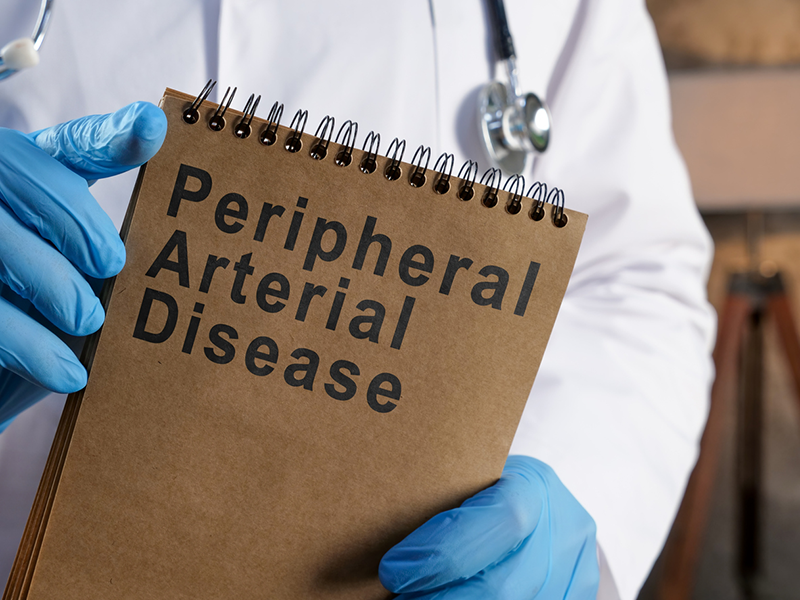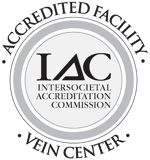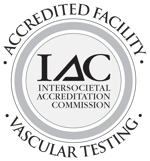Peripheral Artery Disease (PAD) is a condition that is caused by the reduction of blood flow from the arteries to the limbs. PAD means that you have unhealthy blood vessels and treating this is essential.
Since there's no known cure for Peripheral Artery Disease (PAD), doctors recommend lifestyle changes and medicines to help you manage the symptoms. In severe cases where medication isn't responsive, your doctor may recommend surgery.
The risk factors for PAD include high blood pressure, diabetes, and heart disease, among others. Symptoms include:
- Cold feet
- Slow healing for wounds
- Pain when exercising or walking
- Numbness in legs and arms
- Poor nail and hair growth
When lifestyle changes are not enough, prescribing medications can help alleviate some of the leg pain while also helping to reduce the risks of contracting other cardiovascular diseases, such as:
- Stroke
- Heart attack
- Coronary heart disease
While some patients may need to take one medication, others take more than one. These are some of the commonly prescribed medications that may help treat PAD:
Statins
Statins are drugs that lower the levels of cholesterol. They block a substance responsible for the production of cholesterol by the liver. Many patients who use statins experience zero to minimal side effects. The likely side effects include:
- Mild headaches
- Nausea
- Indigestion
- Muscle aches
What if your cholesterol is normal?
Your doctor will consider your long-term heart attack and stroke risks if your cholesterol is normal.
- If you have a low risk, you typically won't need statins unless your LDL exceeds 190 mg/dL.
- If your risk is high, maybe because of a history of stroke or heart attack, or exhibit significant PAD symptoms, a statin is necessary even if your cholesterol is normal.
Antihypertensives
Antihypertensives are drugs that lower blood pressure even in PAD patients. Some make the blood vessels widen to allow efficient blood flow, and others eliminate extra fluids in the blood and decrease your heart rate.
Your doctor will prescribe antihypertensives if you have diabetes and your blood pressure is above 140/90 mmHg or 130/80 mmHg.
The standard type of antihypertensive drug is the angiotensin-converting enzyme (ACE) inhibitor, which hinders the actions of hormones that regulate blood pressure, thus lowering your blood pressure. ACE inhibitors can have the following common side effects:
- Fatigue
- Headaches
- Dizziness
- Persistent dry coughs
These side effects usually disappear after a few days, but a dry cough may continue for longer for some patients. In case of severe side effects, your doctor may prescribe an Angiotensin-2 receptor antagonist.
Blood-Thinning Medicines
When you have atherosclerosis, there's the danger of a fatty deposit breaking off from the artery. This condition will cause a blood clot to form in the broken area. A heart attack is imminent if a blood clot forms inside a coronary artery because the clot will block flow into the heart. Similarly, if it develops along the arteries that supply blood to the brain, it will cause a stroke.
Your doctor may prescribe blood-thinning medicines if you have PAD to reduce the risk of blood clot formation. The drug will thin the blood, so it doesn't clot. These medicines include:
- Clopidogrel
- Aspirin
- Rivaroxaban
- Cilostazol
If you have intermittent claudication, your health provider may prescribe Cilostazol. It is the only medication FDA approved specifically to target claudication symptoms. The side effects of Cilostazol include:
- Headache
- Diarrhea
- Swelling
Your doctor will recommend using Cilostazol for 3 to 6 months to monitor any symptom improvement. If the treatment deems ineffective, you should be able to stop the medication.
Conclusion
PAD is typically manageable through lifestyle changes and medication. By visiting a board-certified vascular surgeon, you will know the underlying conditions that trigger PAD, and you'll receive proper guidance, follow up appointments, and medication.









.jpg?width=944&name=Castle-Connolly-Top-Doctors-Emblem-Large%20(4).jpg)